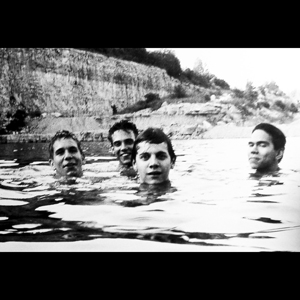There are very few bands that have managed to perfect the art of storytelling through music. Even fewer have been able to use that storytelling to create musical atmospheres that rival even the most bone-chilling pieces of horror media. Slint, however, managed to achieve this feat in 1991 with the release of their iconic album Spiderland. Within Spiderland lies many tracks that deserve their own individual analysis, as they’re all packed to the brim with cryptic messaging and venomous instrumentals. But out of the album’s entire lineup, “Good Morning, Captain” is perhaps the most iconic, seamlessly transitioning from eerie to mesmerizing while telling the story of a ghostly shipwreck and its inhabitants, who are stuck there even after death.
The song starts, and the listener is immediately hit with effectively ominous instrumentals out of the post-rock movement. The bassline, in particular, creates a sense of dread that pervades into every crevice of the soundscape, dragging every other aspect of the song back down to the haunting depths of the story being told. The guitar also plays into this, higher pitches creating ghastly wails that fit in perfectly with the idea of a haunted shipwreck. The lyrics are as bleak as the instrumentals, fitting more into a horror movie script than a song’s lyrics but achieving its goal perfectly. Brian McMahan’s whispered voice lures listeners in, creating an extremely intimate yet brittle atmosphere, ready to break at a moment’s notice.
“‘Let me in,’ the voice cried softly /
From outside the wooden door, scattered remnants of the ship could be seen in the distance /
Blood stained the icy wall of the shore /
‘I’m the only one left. The storm took them all.’ /
He managed as he tried to stand /
The tears ran down his face /
‘Please, it’s cold.’”
What sets “Good Morning, Captain” apart from the other songs on Spiderland are the climactic build-ups found throughout the song. While the instrumentals, in the beginning at least, creep along and create an uneasy dread, the crash of cymbals and distorted scream of the guitar act as a functional jumpscare. The listener wakes from their trance as the song’s lyrics rise to anguished cries before settling back into a hypnotic rhythm and doing it all over again. The ending stands out, as McMahan’s cries of “I miss you” override all the instruments and somehow create a feeling of extreme isolation, even in all the noise.
The song’s enigmatic narrative adds to the allure of the story being told. While the lyrics focus on a ghost ship, haunted shipwreck or some variation of the two, the lyrics dance between creating a narrative and tapping into more personal emotions. This creates lyrics that are in a limbo between being open to interpretation and not, further creating a unique atmosphere that few other songs have been able to achieve. The ambiguity taps into feelings of loneliness, feelings that we’ve all experienced at one point or another. This works to create a strangely personal atmosphere, far beneath the song’s “bonfire story” exterior.
“Good Morning, Captain” is some of the best work the post-rock movement has to offer, acting as one of the foundational tracks for the movement to thrive upon. The introspective lyrics, haunted instrumentation and explosive crescendos come together to create one of the most influential and iconic songs in the genre. Slint’s innovative approach to music, especially in this song, has left an everlasting mark on the post-rock scene, and “Good Morning, Captain” remains an enduring, hauntingly beautiful masterpiece that is sure to captivate any post-rock fan who decides to take the dive.
















